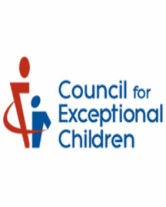On Being a Salesperson
- Make sure school personnel know who you are and what you do.
Think of it as a public relations campaign! Set up some times, places, and situations in which you can do this (e.g., faculty meetings, departmental meetings, PTA meetings, or at lunch). Make sure your audience understands who you are and what you do. Also make sure you let them know what the benefits of your program are to them, the students, and the school.
Describe who you are."I am a resource teacher. I teach students... (giving the who's, what's, and when's), but I also can be a resource to you and help you with students who are in special education programs, as well as those who are not... " (Then tell how you can be a resource.)
"I have a resource room. My resource room serves students in the following ways... My resource room can also serve you in the following ways... " Be specific and say only what you can and are willing to provide.
Present an attitude of: "I am a resource to you and to the students. How can I work with you and be of help to you? How can I make things easier for you as you work with my students and others with special needs?" Do not set yourself up as a savior, martyr, do-it-all, or know-it-all, but rather as a resource, a cooperative peer, a member of the school team someone who has important, helpful things to share.
- Get out among them.
Don't just let them hear you let them see you at work with your students, being a resource, collaborating with other teachers. What they see you doing will have as much, if not more, impact on them than anything else you do! Start talking to people about your work, their needs, or your students. Give them strokes for the legitimately fine work they do. Ask whether you can work with them in any way that would be helpful to them!
- Do ongoing public relations.
- Have teacher appreciation days. (Let your kids serve punch and cookies and show off their work.)
- Put posters and flyers around the school with helpful suggestions.
- Print a quarterly newsletter with helpful information to regular educators.
- Advertise your services.
- Help organize a teacher support group, if you do not already have one.
- Get free brochures on disabilities and distribute them.
- Help get speakers in for faculty meetings or inservice days.
- Have teacher appreciation days. (Let your kids serve punch and cookies and show off their work.)
- Watch yourself!
- If you spend time in the lounge, make sure you are working on something work-related. Be busy!
- Make positive statements about your students. Let teachers know about their progress.
- Do not slip up and make disparaging remarks about any of your professional cohorts. If you have a problem with a peer, try to settle it between the two of you, or ask a trusted cohort to help you problem-solve in a positive, professional manner.
- Try not to get involved in negative conversations about certain students. Make this an opportunity to offer any services you have that might help these students. Empathize, but do not further this kind of negative discussion by joining In. The teacher may just need to vent frustration. You should not offer more ammunition. Also be sure to protect confidential information.
- Try to win over respected, influential faculty members who can expand your PR efforts. If they see you as a valuable resource, it will influence other faculty members.
- Participate in school-wide functions. Make yourself available and helpful!
- If you spend time in the lounge, make sure you are working on something work-related. Be busy!
- Map out a plan.
- Decide who will be your contacts each week.
- Decide what these contacts will consist of (e.g., a speech, written correspondence, in-classroom assistance, a special event, or an awareness session).
- Do not wait for opportunities to arise for doing PR. Your efforts must be proactive, coordinated, and effective. Leaving this up to chance will minimize your impact.
- Decide who will be your contacts each week.
Example of an August Activity
- During the summer months, contact banks, insurance companies, and businesses, and ask for donations of freebies to give your faculty members. Often these persons have pens, pencils, rulers, or notepads that they give out for advertising purposes. Get a wide variety of items and place them in bags to give teachers in August. Also include in the bag a description of the services, materials, and information you have available to help them, and the services you provide to your students.
- Make an appointment with your building administrator to map out your plans and activities. This person's backing will be crucial to your success. You will most likely receive this support if you have a written plan for review and if you communicate clear-cut benefits of your efforts for the staff and your students. Talk about both your long- and short-range plans and explain why you have set these particular goals. When you get the administrator's approval of your plan, schedule a specific time on the calendar for you to talk with the faculty the sooner the better!
- During this month, try to contact all teachers who have your students. Give them information about the students, when they see you, what they are doing, and provide forms for the teachers to use when contacting you to ask for assistance.
- Put a flyer out regarding the information and services you have available.
- Make inroads with respected and influential faculty members regarding your resourcing role. Pick two or three and schedule a time to talk with them. Bring something to give them that will benefit them in working with students who have special needs.
More articles on Being a Resource to Others
















